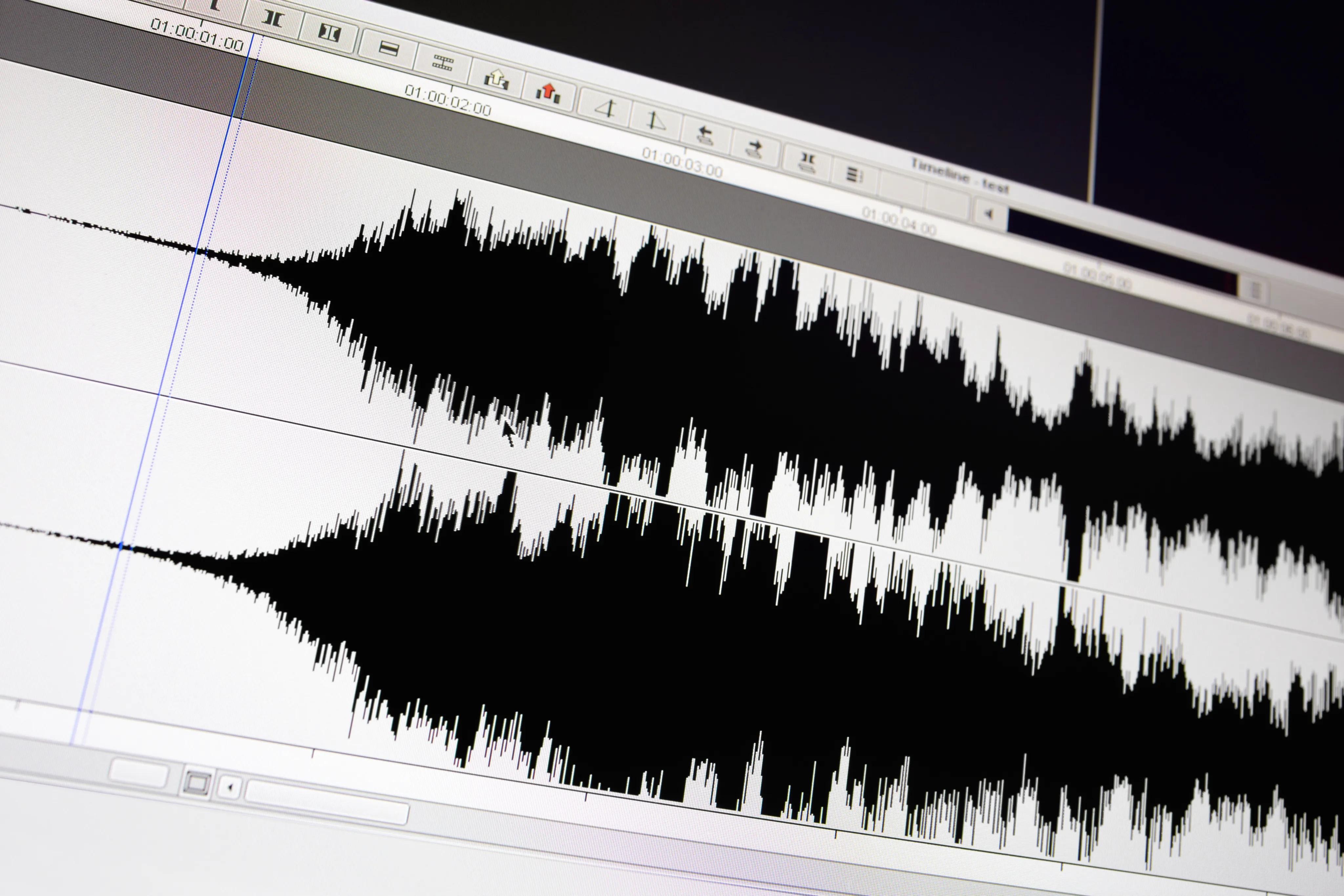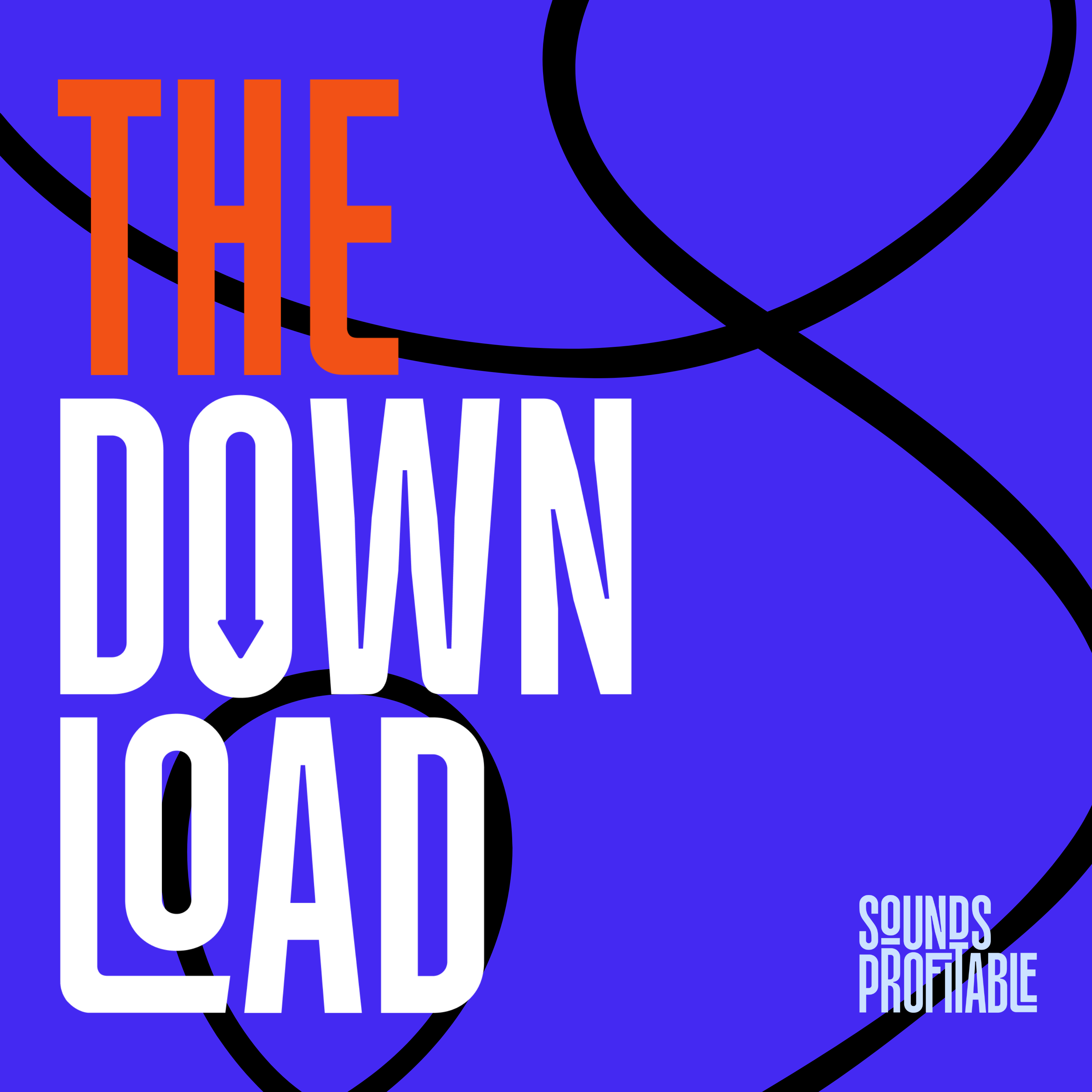Manuela: This is The Download from Sounds Profitable, the most important news from this week and why it matters to people in the business of podcasting. I’m Manuela Bedoya.
Shreya: And I’m Shreya Sharma.
Manuela: The Download is brought to you by Magellan AI. Track the trends in spend, ad load, podcasts on YouTube, and more with Magellan AI’s advertising benchmark report for Q4, available now. You can find a link in the description or visit Magellan dot AI.
Shreya: This week: Spotify retires Gimlet and Parcast brands, why advertisers are reconsidering keyword blocklists, and a new installment of Research Roundup.
Manuela: Before we get started, a short programming note. Starting next week, The Download will transition to publishing on Friday mornings. The show will remain otherwise unchanged, we’ll just be joining you for your morning coffee instead of afternoon tea. We’ll see you then!
Shreya: Let’s get started.
Spotify lays off 2% of podcast workforce, to retire Gimlet and Parcast brands.
Manuela: This Monday, an internal memo from Sahar Elhabashi, head of Spotify’s podcasting unit, announced the company is downsizing the podcasting wing by 2%. This is estimated to be laying off around 200 positions. A quote from Elhabashi’s memo, as reported by Alex Weprin for The Hollywood Reporter:
“This fundamental pivot from a more uniform proposition will allow us to support the creator community better. However, doing so requires adapting; over the past few months, our senior leadership team has worked closely with HR to determine the optimal organization for this next chapter.”
In addition to layoffs, the Spotify-owned production companies Parcast and Gimlet are scheduled to be dissolved into Spotify Studios. Shows produced at the two networks will continue to exist. Another quote from Elhabashi’s memo:
“Both studios will greenlight new shows with an increased focus on always-on programming that drives strong, loyal audiences and attracts advertisers.”
In an article about mergers and acquisitions in podcasting on Tuesday, J. Clara Chan covered the bigger picture of podcast mergers and acquisitions over the past few years. While covering mergers and acquisitions that found success, she spoke with Rococo Punch co-founder John Perotti about his company’s recent merger with podcast and audiobook company Audily.
At its core, the deal brings together two companies without much inherent overlap. Perotti frames it as the two companies not stepping on each other’s toes by making the same content. Rococo Punch can help Audily clients and Audily can help Rococo Punch clients. A quote from Perotti in the article:
“I’m hoping that there’s a lot of small companies out there that might think about doing what we’re doing, because it feels … like weatherproofing your company for whatever is about to come. We made a smart choice and we’re waiting and watching to see what happens in the industry.”
It seems podcasting has stepped out of the phase of big deals with flashy price tags. As the Rococo Punch/Audily deal shows, there will continue to be mutually-beneficial deals made between companies that can have symbiotic relationships. There’s just a lower chance of seeing a single show selling for enough money to buy Antarctica.
Why advertisers are reconsidering keyword blocklists as brand safety approaches to hard news
Shreya: On April 20th, Digiday published a sponsored article from Al Jazeera Media Network on advertisers reconsidering the utility of keyword blocklists. Written by SVP of business development and growth Michael Weaver, the piece breaks down motivations for advertisers distancing themselves from a dated strategy.
As has been covered several times on The Download, the huge downside of blocking simple keywords leads to a large amount of false positives that leads to largely demonetizing news content. From Weaver’s article:
“Misapplications of brand safety also create significant roadblocks for diverse, equitable and inclusive advertising and media owned by and featuring underrepresented groups. For example, an agency that might want to prevent promotions for its clients from appearing alongside news stories about political protests could, through a keyword block, steer funding away from virtually all Black-owned media.”
Weaver argues the repercussions of wide-ranging blocklists can be stemmed by advertising as an industry coming together and creating updated standards and methods, with a specific focus on what actually counts as ‘brand safe.’ Contextual decision-making can be key to injecting monetary support into websites currently left behind by block lists.
As Weaver points out, if someone goes to a hard news website or one providing useful information on a difficult subject, they are actively consenting to that content. By comparison to the Wild West of social media feeds, websites focusing on cancer or coverage of negative world news are far more brand safe.
“By challenging the brand safety status quo and devising new approaches to media buying this way, everybody wins. Consumers get well-financed news critical for democracy, publishers are rewarded for outstanding reporting, and advertisers can access premium audiences.”
Podcasting has a growing stable of tools and services capable of building a world where smart contextual targeting both gets journalists paid and keeps advertisers brand-safe. As an industry we have the potential to become a frontrunner in phasing out blocklists.
Research Roundup:
Manuela: For our last story we’re going to do another Research Roundup. Get ready for some numbers as we rapid-fire hit the highlights of the multiple studies published over the last week. Let’s go:
First from SXM Media and Edison Research: the Gen Z Podcast Listener Report. Unsurprisingly, GenZ enjoys podcasts. 47% of Americans 13-24 have listened to a podcast in the last month, with a 57% increase in listenership for that demographic in the last five years. 3 in 4 respondents have listened to a podcast in the last week and the average amount of time spent with podcasts in a week is 7.7 hours.
Up next: The State of Audio Technology Report, 2023 edition, from AdsWizz. Built from proprietary data and in-depth interviews with industry experts, the State of Audio Tech report tracks trends, themes, and opportunities in audio adtech. Streaming digital audio reaches 83% of 18-34-year-olds and 84% of 18-24-year-olds. By 2024 global podcast listenership is predicted to have increased 52% from 2020 numbers.
The new Cumulus Media and Signal Hill Insights’ Podcast Download – Spring 2023 comes with an enticing headline: Is YouTube Eating Podcasts? The study finds YouTube is the ‘most utilized podcast listening platform’ in the U.S, with 29% of respondents saying it’s the platform they use most. Spotify comes in with 17% of the same stat, and Apple is at 16%.
While numbers vary slightly across similar studies with different methodology, the primary takeaway is legacy platforms are being overtaken by up-and-comer YouTube as a primary podcast consumption destination.
On the note of content consumption, this week’s Hot Pod covered two new surveys from the Audio Publishers Association, one produced with Edison about consumer behavior and one with Harris Interactive covering sales. Among other findings, audiobook consumers tend to skew Gen X and younger and the audiobook industry hit $1.8 billion revenue in 2022. Which, coincidentally, ties the IAB estimate of the podcasting industry reaching $1.8 billion last year.
Speaking of research, registration for the upcoming study The Podcast Opportunity: Buyer Perceptions of Podcast Advertising is now open. Check the link in the description to grab your free digital seat to hear the latest thinking and insights from buyers in this new study, all on June 28th at 3:00 PM Eastern.
Shreya: Finally, it’s time for our semi-regular roundup of articles we’re calling Quick Hits. These are articles that didn’t quite make the cut for today’s episode, but are still worth including in your weekend reading. This week:
iOS 17: What’s new for Apple Podcasts. During the 2023 Worldwide Developers Conference, Apple announced upcoming changes in iOS 17 that will impact Apple Podcasts. New features include search filters, episode art, and an updated player experience. Developers currently have access to a beta, while public beta testing is slated for later this month.
Podcasting’s Biggest Opportunity by Tom Webster. Podcasting is becoming more competitive and less collegial every year. Is that a good thing, a bad thing, or just inevitable? Tom Webster suggests there is still an important job we all need to collaborate on first.
Triton Audio Marketplace Expands Basis Technologies Partnership to Support Advertising Across Digital and Broadcast Radio Segments. The new arrangement aims to enable marketers to streamline and consolidate content across all audio segments (podcasting, streaming, and terrestrial broadcast radio) via the Triton Audio Marketplace.
Canadian Branded Podcast Agency Seeks Bad Reviews for its New Show. JAR Audio’s new ‘tell all’ about the branded podcast industry, pitched as part advice column and part sketch comedy, is asking be ruthlessly critical of the show during its upcoming launch window.
Finally: the Sounds Profitable press release portal is now open! You can now submit your press releases directly to Sounds Profitable via the new portal at SoundsProfitable.com/press. In fact, the last two Quick Hits are pulled directly from our press release section. Head over now and amplify your podcast industry-related news and announcements.
Manuela: And that was The Download, brought to you by Sounds Profitable! Today’s episode was built using Spooler and hosted on Art19. Find out more at Spooler.fm and Art19.com
I know we went through today’s stories fast, so be sure to check out the links to every article mentioned, right in your podcast listening app, or on SoundsProfitable.com/Podcast. And thank you for sticking with us as we bring you the top stories you might have missed from the past week. I’m Manuela Bedoya.
Shreya : And I’m Shreya Sharma. Our producers are Bryan Barletta, Gavin Gaddis, and Tom Webster. Special thanks to Art19 for hosting The Download. And thanks to you for joining us.
Robot?


 "
"



